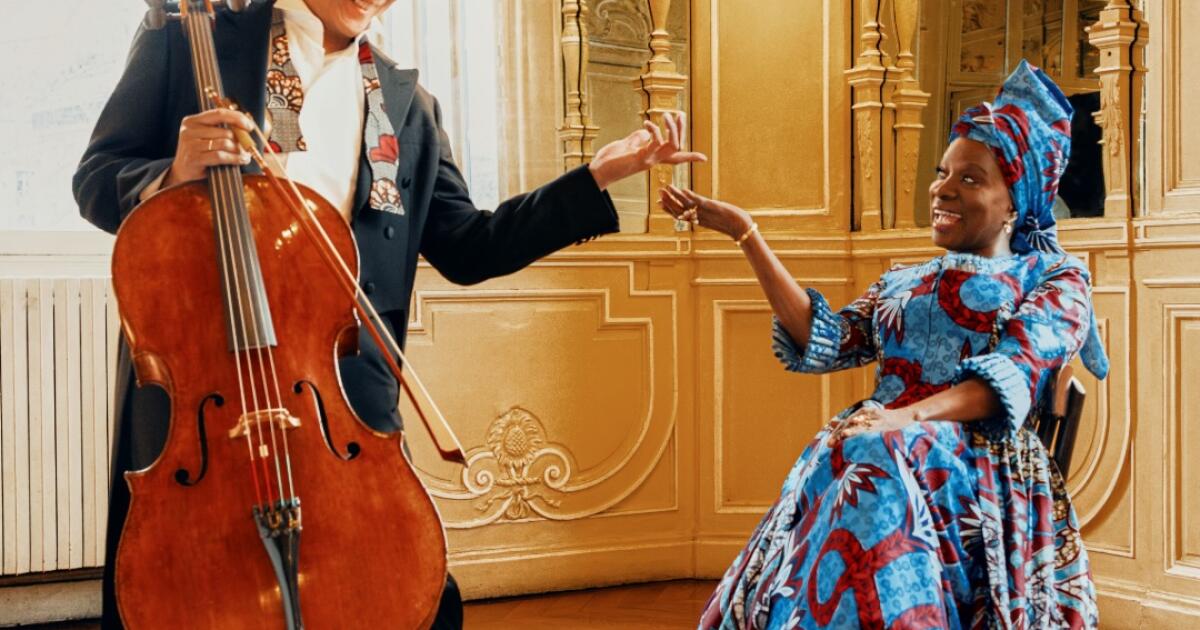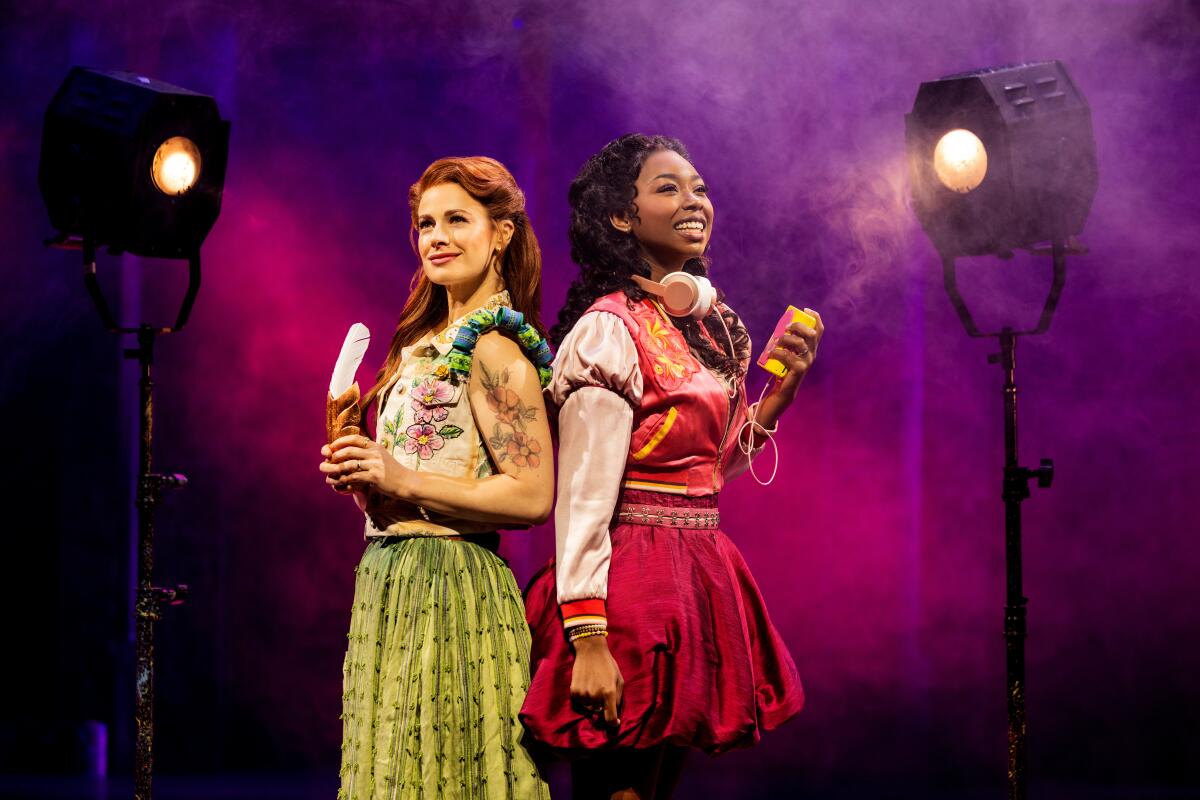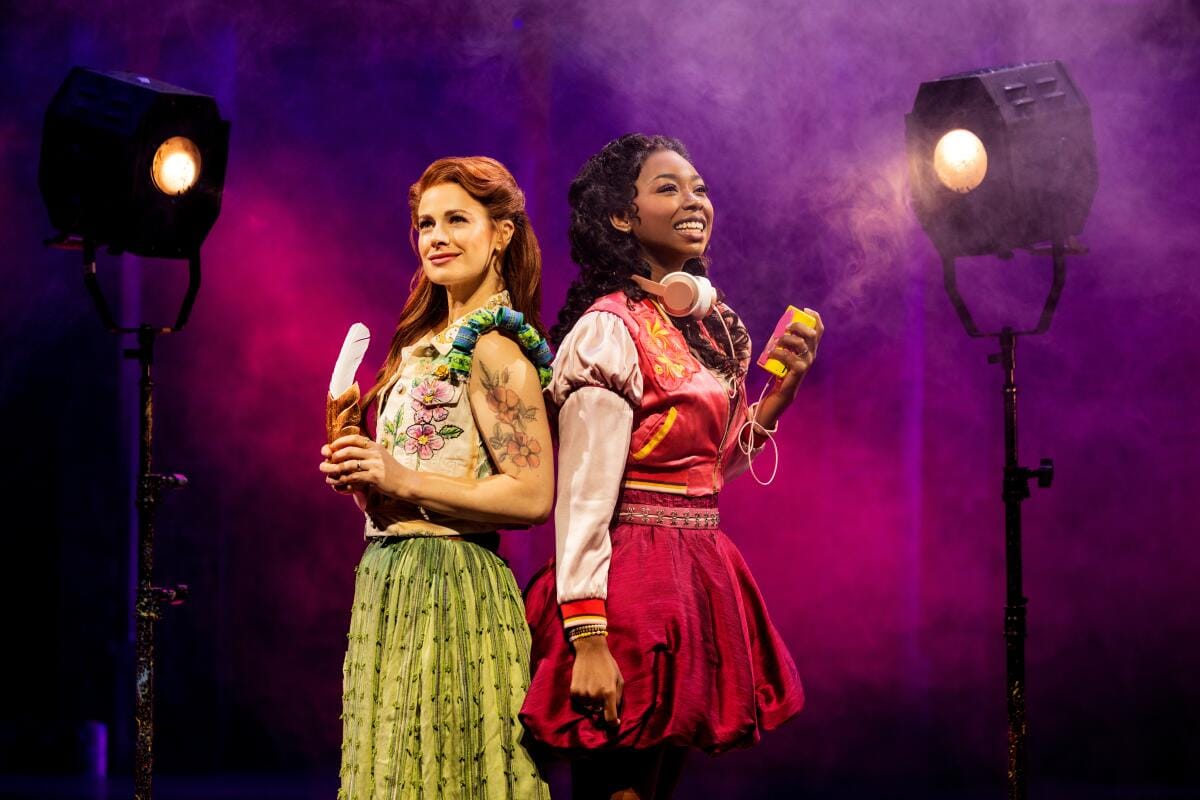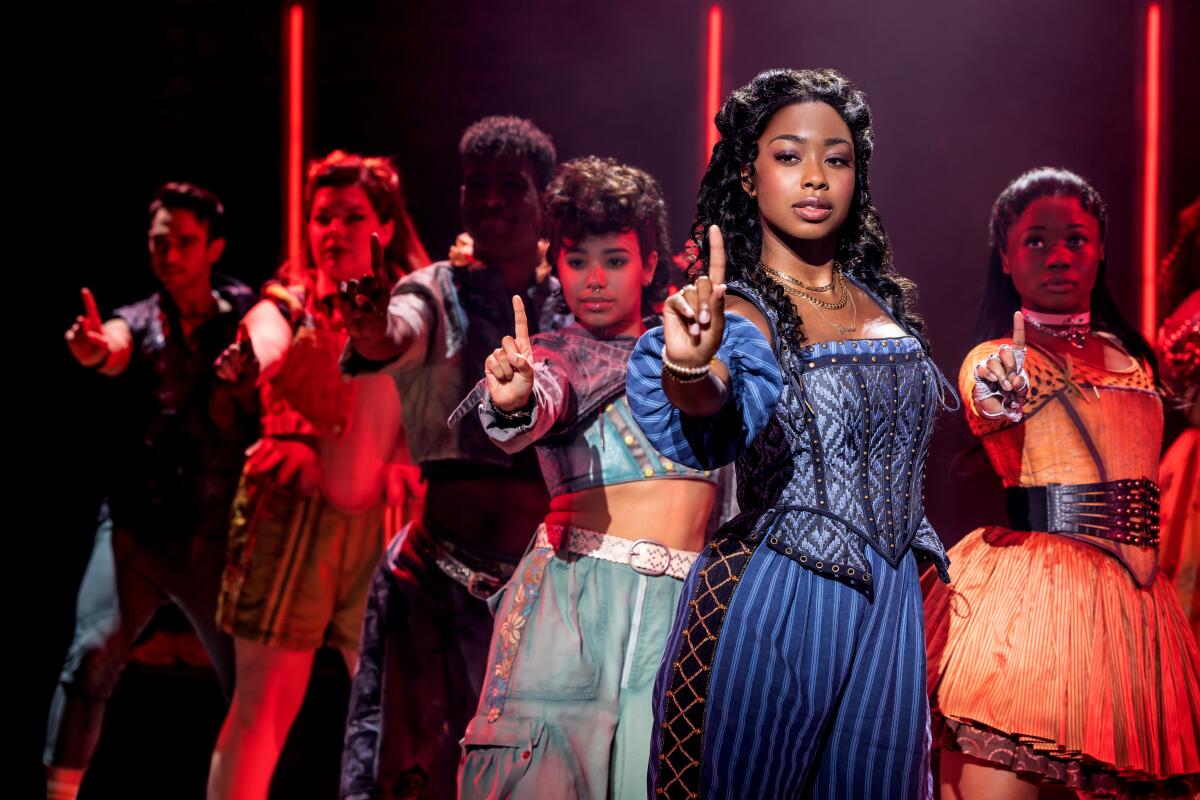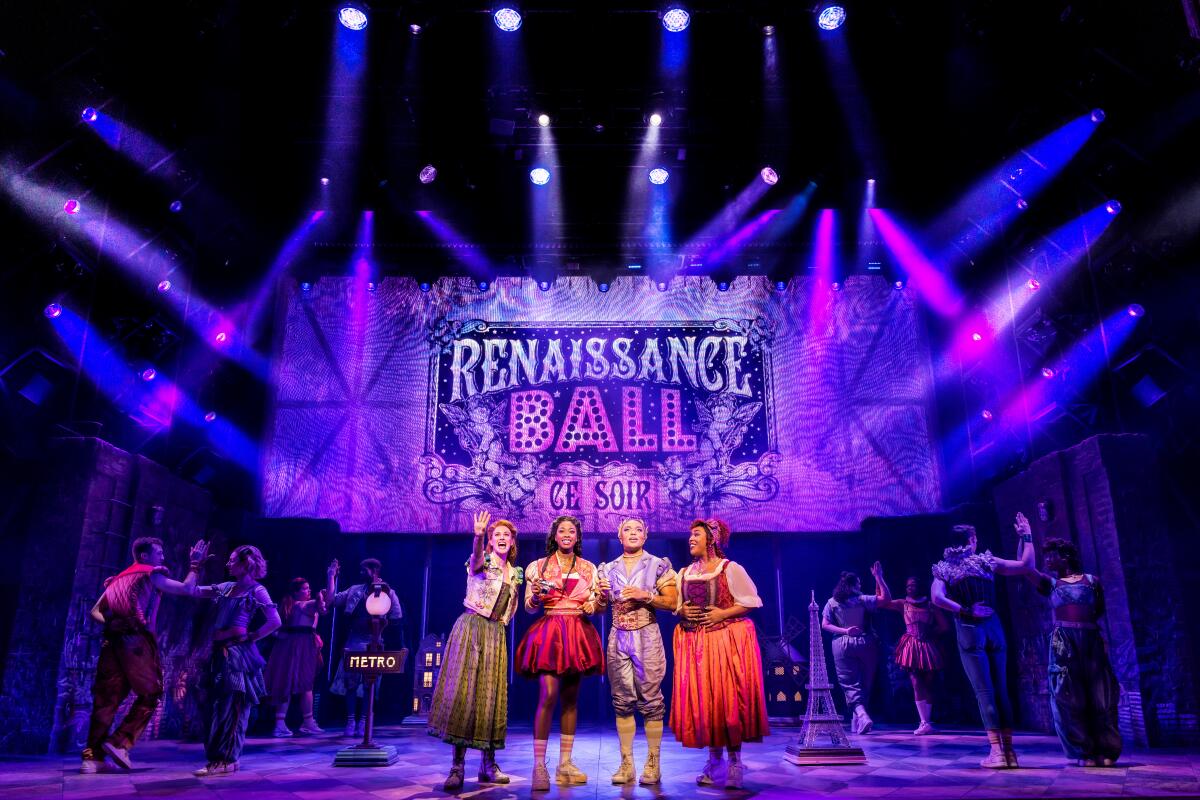Review: Africa meets Bach by way of Angélique Kidjo and Yo-Yo Ma
The heart and soul of suites by Bach and Handel are often found in the slow, central sarabande, said to be a dance of Spanish origin. In Bach’s cello suites, the sarabande stops time. Watch Yo-Yo Ma play a sarabande. His eyes seem to recede under his eyelids, as though entering a profound state of hypnosis. He can make a Bach sarabande work anywhere, including on a river rafting trip with a background of gurgling water on his latest Bach recording.
The sarabande from Handel’s D-Minor Keyboard Suite is well known as the theme from “Barry Lyndon,” about to thrill Stanley Kubrick fans all over again with the new 50th anniversary 4K restoration screening Saturday night at the Egyptian.
That Handel sarabande was one of the catchy opening numbers of “Sarabande Africaine,” Ma’s joint appearance with Afropop singer-songwriter Angélique Kidjo at the Hollywood Bowl on Thursday night. Ma and Kidjo met seven years ago at an event in Paris commemorating the end of the World War I. That led him to look a little deeper into music he had been playing since he was a young boy and was by now ingrained in his DNA.
And it led him to loudly exclaim, before playing the sarabande from Bach’s Second Solo Cello Suite in his short solo set, “Who knew?”
Musicologists have discovered the origin of the rhythmic patterns of what became this Baroque era vehicle for the transmigration of souls in dances carried by enslaved Africans to 16th century Spain. The church banned the sarabande for its perceived lusty eroticism. But when the dance later reached the hands of a certain German father of 20 children, Bach made sarabandes of such mystical serenity that eros equaled the sacred miracle of new life.
That Ma, an old Silk Road musical warrior, and the multifaceted Kidjo bonded is hardly surprising. But that they could put on a show with a fabulous family of African drummers, Caribbean piano and percussion, and assorted electric guitars and brass and dancers in which all the world — not just Bach but Philip Glass, Dvorak, Gershwin, Ravel, you name it — seemed to be just waiting for the right African accent, and that traditional African music needed no translation at all for some 17,000 at a near full Bowl, that was something.
Even so, Kidjo and Ma are an odd couple. Kidjo proudly transforms anything she comes into musical contact with. To hear “Summertime” in Swahili, a beautiful language for song, is indescribably touching. Kidjo added words to “Bolero.” They were not translated and didn’t need to be. Ravel’s rhythms had a riveting new freshness.
Ma’s cello, on the other hand, fits in, often remaining in the background, though not a distant background. He got into playful duets with drummers and a moving one with Kidjo as an intro to “Summertime.”
There was talk of peace, a better world where we understand each other, by both Ma and Kidjo. They demonstrated how that might work, with Kidjo commanding the stage, brilliantly dressed, while Ma, seated and in a sport coat for the first part, speaking a different yet compatible musical language. Even so, it was the big, crowd-pleasing Kidjo numbers that ultimately sent the audience home dancing.
There was, however, one particularly fascinating area of communality. Glass has written important pieces for both. Ma is featured in Glass’ 2002 score to “Naqoyqatsi,” the third in the “Qatsi” trilogy of silent documentary films by director Godfrey Reggio. Although the least known, “Naqoyqatsi” has an antiwar theme that would have fit right in with “Sarabande Africaine.”
Glass also fell under Kidjo’s spell, first composing three enchanted “Yoruba” songs for the singer, and then his Symphony No. 14 (“Lodger”) for her and premiered by the Los Angeles Philharmonic in 2019. The third in another Glass trilogy, this of symphonies based on David Bowie albums, “Lodger” consists of seven Bowie songs sung by Kidjo with new music by Glass.
For “Sarabande Africaine,” Kidjo sang the first of the songs in the symphony, “Move On,” arranged for cello, piano and percussion. Ma carried the main orchestral melodic lines. Bowie, who sometimes felt the need to move on, could well have written the song for Kidjo, with lines like, “Somewhere, someone’s calling me.”
The two-hour “Sarabande Africaine,” without intermission, could get a tad preachy. The evangelical mixing of musical genres and geography had its touristy elements; however engaging and engrossing the wonder-making, it was always fleeting.
But, ironically, “Move On,” in its new setting, had the powerfully intimate feel of stopping and reflecting. This was the one composer Kidjo and Ma both knew personally. They were equals and equally at home with his style, and the movement put the moving on, the “drifting like a leaf,” “feeling like a shadow,” stumbling “like a blind man,” in revealing relief.
“Move On” ends with Ma tracing a haunting, fleeing cello response to Kidjo singing “Can’t forget you / Can’t forget you” She might have been speaking for how her audience hears her, but also of the forgetful nature of the history of music, in which we are maybe not meant to remember. You hear something, make it your own and move on.
